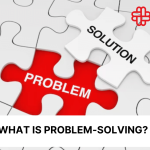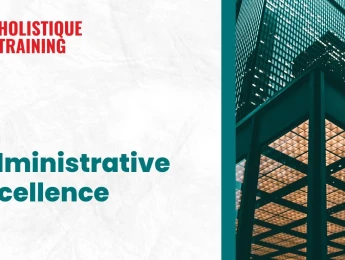In a world of rapid change and complex challenges, educators need more than content knowledge — they need the ability to think critically and solve problems effectively, both in their teaching practice and in supporting their students.
This course equips educators with the skills, tools, and mindset to analyse situations logically, evaluate evidence, make sound decisions, and develop creative solutions to educational challenges. Participants will learn how to foster critical thinking in their own practice and in their learners, enhancing classroom engagement, learning outcomes, and professional growth.
By the end of this course, participants will be able to:
- Understand the principles and components of critical thinking and problem-solving.
- Apply critical thinking techniques to classroom and institutional challenges.
- Develop strategies for making evidence-based and ethical decisions.
- Foster a culture of inquiry, creativity, and reflection among students.
- Use structured approaches to analyse problems and develop innovative solutions.
- Reflect on personal biases and assumptions to improve professional judgement.
This course is ideal for:
- Teachers at all levels (primary, secondary, higher education).
- School administrators and educational leaders.
- Instructional coaches and curriculum developers.
- Teacher trainers and mentors.
- Anyone involved in designing or delivering education or training.
The course combines interactive lectures, case study analysis, group discussions, and practical exercises. Participants will engage in real-world scenarios, role-playing, and collaborative problem-solving to apply the concepts and tools effectively.
Day 5 of each course is reserved for a Q&A session, which may occur off-site. For 10-day courses, this also applies to day 10
Section 1: Foundations of Critical Thinking for Educators
- What is critical thinking? Definitions and key components.
- The importance of critical thinking in education and professional practice.
- Identifying assumptions, biases, and logical fallacies.
- Reflective practice: examining your own thinking patterns.
- Workshop: assessing a real classroom dilemma critically.
Section 2: Problem-Solving Frameworks and Techniques
- The problem-solving process: define, analyse, generate, implement, evaluate.
- Common barriers to effective problem-solving and how to overcome them.
- Divergent vs. convergent thinking: when to use each.
- Creative problem-solving tools: brainstorming, mind mapping, SCAMPER.
- Workshop: solving an educational problem using a structured framework.
Section 3: Decision-Making in Complex Educational Contexts
- Making decisions under uncertainty and with incomplete information.
- Balancing ethical, practical, and institutional considerations.
- Using data and evidence to support decisions.
- Collaborative decision-making: involving stakeholders and students.
- Case study: evaluating options in a school-wide policy issue.
Section 4: Fostering Critical Thinking and Problem-Solving in Learners
- Teaching strategies to develop critical thinking in students.
- Questioning techniques and inquiry-based learning.
- Designing activities and assessments that promote analysis and creativity.
- Encouraging metacognition and self-reflection in learners.
- Workshop: creating a lesson plan that integrates critical thinking.
Section 5: Sustaining a Culture of Critical Thinking and Innovation
- Building habits of critical reflection and lifelong learning.
- Encouraging innovation and risk-taking in educational settings.
- Overcoming resistance to change and promoting a growth mindset.
- Integrating critical thinking and problem-solving into institutional practices.
- Final group exercise: developing a personal or team action plan for fostering critical thinking in your school or classroom.
Upon successful completion of this training course, delegates will be awarded a Holistique Training Certificate of Completion. For those who attend and complete the online training course, a Holistique Training e-Certificate will be provided.
Holistique Training Certificates are accredited by the British Accreditation Council (BAC) and The CPD Certification Service (CPD), and are certified under ISO 9001, ISO 21001, and ISO 29993 standards.
CPD credits for this course are granted by our Certificates and will be reflected on the Holistique Training Certificate of Completion. In accordance with the standards of The CPD Certification Service, one CPD credit is awarded per hour of course attendance. A maximum of 50 CPD credits can be claimed for any single course we currently offer.
- Course Code IND08-106
- Course Format Classroom, Online,
- Duration 5 days













